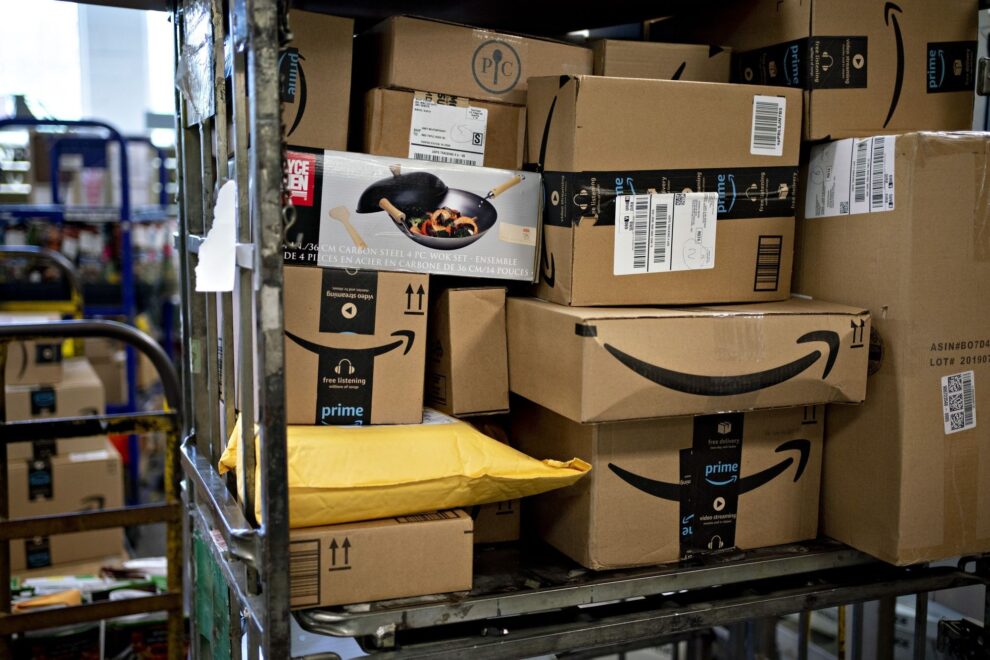
(Bloomberg) — Online shoppers in the U.S. will spend up to $11.4 billion on Cyber Monday, according to a revised estimate from Adobe Inc., indicating consumers responded to deals from retailers that enticed them to begin shopping before the annual event.
Adobe revised its Cyber Monday spending estimate downward from an earlier projection of a record-busting $12.7 billion, after retailers this year started to entice people to shop earlier in the season to avoid capacity problems. Despite the revision, Cyber Monday is on track to set another record for online spending in a single day, topping the $9 billion spent on Black Friday and up as much as 21% from a year ago, since pandemic-spooked consumers are shifting more of their purchases from stores to websites.
“While COVID-19, the elections and uncertainty around stimulus packages impacted consumer shopping behaviors and made this an unprecedented year in e-commerce, we expect to see continued, record-breaking e-commerce sales from now until Christmas,” Taylor Schreiner, director of Adobe Digital Insights, said in an emailed statement.
The big spending shift presents a valuable opportunity for retailers whose websites, customer service departments and delivery operations can withstand the period of crushing traffic. Amazon.com Inc., Walmart Inc., Target Corp., Best Buy Co. and others have been preparing for the 2020 holiday deluge for months. This week will be the ultimate test for their new investments in ramping up delivery capacity and adding features like parking lot pickup for digital orders.
Nearly 30% of Cyber Monday spending will happen between 7 p.m. and 11 p.m. Pacific time, when bargain-hunting shoppers finally pull the trigger, according to Adobe.
All that spending in a compressed time means that any service interruptions on Cyber Monday — slow websites, payment processing problems, shopping carts that vanish before checkout — could be painful for companies.
“Even large retailers could be crippled with the demand,” said Mario Ciabarra, chief executive officer at Quantum Metric, which helps online retailers fix website problems. “Every minute counts and every customer counts.”
There were already signs that some web stores are struggling to handle the load. Sites for prominent retailers had 39% more errors on Black Friday than they did a year ago, according to Quantum Metric.
Black Friday spending of $9 billion also missed Adobe’s forecast of $10.3 billion, another sign of cautious consumer spending during the pandemic and shoppers reacting to deals earlier in the holiday season. But Cyber Monday will likely still be the peak, because many shoppers are conditioned to hold off on big purchases in anticipation of price cuts.
Cyber Monday deals mostly weren’t much better than Black Friday deals, said Kristin McGrath, editor at BlackFriday.com, which monitors web deals. Harkening back to traditional door-buster Black Friday tactics, many digital shops are likely to offer eye-popping discounts on popular products that usually sell out quickly to attract people to their site, hoping they linger and load up shopping carts with other things.
Shoppers may find the net result is underwhelming. “Amazon is offering the exact same deals on Echo speakers and some other devices as they did on Black Friday,” McGrath said. “Cyber Monday is not really the day to wait for anymore.”
Another reason that discounts might not be deep on Monday is that customers would be mad if retailers who told them to shop earlier this year saved their best deals for Cyber Monday, said Andrew Lipsman, analyst at EMarketer. The upshot for retailers is the holiday season could be more profitable.
“There’s more room this year for retailers to take back some margin than in previous years,” Lipsman said. “Shoppers have heard about shipping problems and tight supplies, so if they see a good deal they’re going to take it. There’s no reason to be greedy.”
(Updates with spending data and quote)
For more articles like this, please visit us at bloomberg.com
Subscribe now to stay ahead with the most trusted business news source.
©2020 Bloomberg L.P.











Add Comment